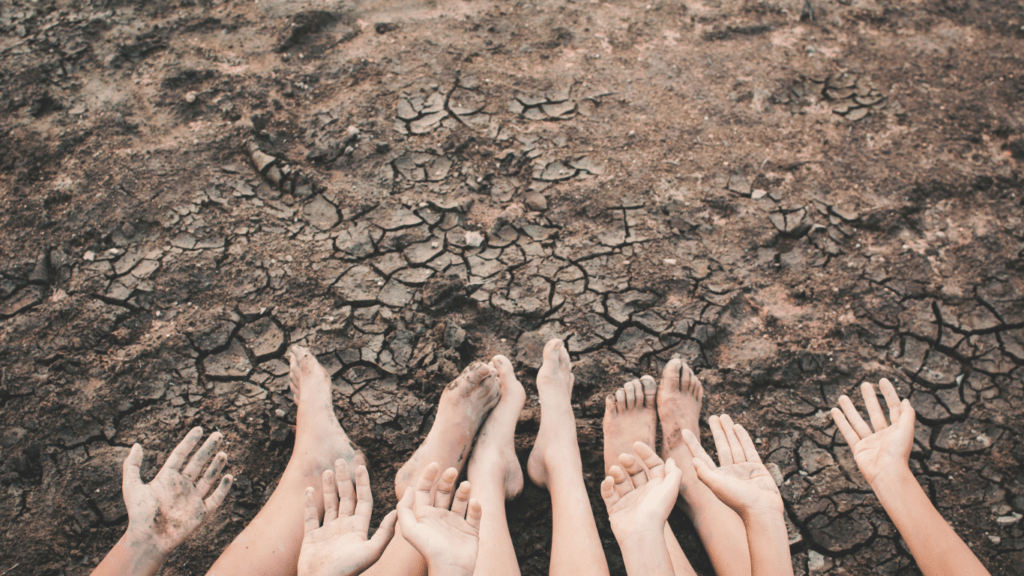Overview of the New Climate Change Report
The latest climate change report presents critical data on the accelerating effects of global warming. It offers a detailed analysis of current climate trends using advanced scientific methods.
Key Findings of the Report
The report outlines several key findings:
- Rising Temperatures: Global temperatures have increased by 1.2°C since pre-industrial times.
- Extreme Weather Events: Instances of hurricanes, floods, and wildfires have intensified over the past decade.
- Biodiversity Loss: Over 1 million species face the threat of extinction due to changing climates.
- Sea-Level Rise: The sea level has risen by an average of 3.2 millimeters per year, contributing to coastal erosion and habitat loss.
The Science Behind the Findings
The report relies on extensive climate models and observational data. Satellite imagery, ocean buoys, and atmospheric measurements provide accurate assessments of temperature and carbon dioxide levels.
The use of paleoclimate data helps contextualize current trends against historical variations, offering a comprehensive view of climate dynamics.
Accelerating Impacts Described in the Report
The recent climate change report highlights several accelerating impacts that require urgent attention. Key areas of concern include global temperatures, sea levels, and the frequency of extreme weather events.
Impact on Global Temperatures
- Global temperatures have risen by 1.2°C since pre-industrial times.
- This rise is linked to greenhouse gas emissions from human activities.
- Higher temperatures lead to heatwaves, damaging ecosystems and human health.
- Historical data and climate models show this trend will continue if emissions aren’t curbed.
- Arctic regions, already experiencing warming twice the global average, face severe consequences.
Rising Sea Levels and Coastal Erosion
Sea levels have been rising by 3.2 millimeters annually. Melting polar ice and thermal expansion are the main contributors.
Coastal erosion is a direct result, threatening habitats and human settlements.
Low-lying areas, like island nations and coastal cities, are at higher risk of flooding. The report urges immediate measures to protect and adapt these regions to prevent disaster.
Extreme Weather Events Frequency
The frequency of extreme weather events, such as hurricanes, floods, and wildfires, has increased. The report’s data indicate a clear correlation between rising global temperatures and intensified weather phenomena.
These events cause widespread destruction, economic losses, and displacement. Scientists rely on observational data and satellite imagery to track these changes, emphasizing the need for robust disaster preparedness plans.
Responses to the Climate Change Report

The latest climate change report has spurred various responses across different sectors. These actions emphasize the need to address the accelerating impacts of global warming swiftly and efficiently.
Governmental Policy Changes
Governments worldwide are updating policies to mitigate climate change. Several countries have committed to net-zero emissions by 2050.
These commitments include transitioning to renewable energy sources, enforcing stricter emissions regulations, and incentivizing green technology.
The European Union’s Green Deal aims to reduce greenhouse gas emissions by 55% by 2030 compared to 1990 levels. In the US, the Inflation Reduction Act allocates $369 billion for energy security and climate change programs.
Corporate Responsibility and Innovations
Corporations are taking novel approaches to sustainability. Companies like Microsoft and Apple are investing in carbon removal technologies and renewable energy projects.
Microsoft aims to be carbon negative by 2030, while Apple plans to achieve a net-zero carbon footprint by 2030 across its entire supply chain and product lifecycle.
Advances in clean technology, such as:
- electric vehicles
- renewable energy storage solutions
highlight corporate commitments to reducing their environmental impact.
Public Perception and Activism
Public awareness of climate change is growing, leading to increased activism. Movements like Fridays for Future and Extinction Rebellion have mobilized millions worldwide to demand stronger climate policies.
Recent surveys indicate that over 70% of the global population considers climate change a significant threat.
This heightened awareness drives consumer behavior towards more sustainable choices and pressures policymakers to act faster on climate issues.
Strategies to Mitigate Climate Change
Effective strategies are essential to mitigate the impacts of climate change. Here’s a detailed guide on key approaches.
Reducing Carbon Footprints
Reducing carbon footprints is crucial. Individuals and organizations adopt practices like energy-efficient appliances, public transportation, and reducing waste.
The average American generates approximately 16 metric tons of CO₂ annually, contributing significantly to global emissions. By driving less and recycling more, people can cut their carbon footprint.
Renewable Energy Solutions
Renewable energy solutions offer sustainable alternatives to fossil fuels. Solar, wind, and hydropower contribute substantially to reducing greenhouse gas emissions. In 2022, renewable sources made up nearly 29% of global electricity generation.
Using solar panels and wind turbines helps decrease reliance on carbon-intensive energy.
Conservation and Reforestation Efforts
Conservation and reforestation efforts play a vital role in sequestering carbon. Projects like reforesting degraded lands and protecting existing forests help absorb CO₂.
For instance, the Amazon Rainforest stores up to 450 billion metric tons of carbon, highlighting the importance of preserving large forest areas. Conservationists also advocate for planting more trees to enhance absorption.
Implementing these strategies can significantly curb the effects of climate change.


 is the founder of Luck Lounge Land, a platform dedicated to gambling and game theory. Raised in Ironton, Ohio, Ronaldie studied Business Administration and Information Technology at Ohio University. Inspired by a summer internship at a Las Vegas casino, he created Luck Lounge Land to blend his expertise in business and gaming. His website offers news, insights, and interactive features for gambling enthusiasts worldwide.
Ronaldie's innovative approach has made Luck Lounge Land a popular resource for gamblers. He frequently shares his knowledge through articles and webinars. His passion for educating others is evident in the site's 'Game Theory Academy.' Ronaldie's commitment to quality content has attracted a loyal following. He continuously seeks ways to enhance the user experience. Outside of his work, Ronaldie enjoys exploring new casino trends and technologies.
is the founder of Luck Lounge Land, a platform dedicated to gambling and game theory. Raised in Ironton, Ohio, Ronaldie studied Business Administration and Information Technology at Ohio University. Inspired by a summer internship at a Las Vegas casino, he created Luck Lounge Land to blend his expertise in business and gaming. His website offers news, insights, and interactive features for gambling enthusiasts worldwide.
Ronaldie's innovative approach has made Luck Lounge Land a popular resource for gamblers. He frequently shares his knowledge through articles and webinars. His passion for educating others is evident in the site's 'Game Theory Academy.' Ronaldie's commitment to quality content has attracted a loyal following. He continuously seeks ways to enhance the user experience. Outside of his work, Ronaldie enjoys exploring new casino trends and technologies.
